“The flow of time is always cruel… Its speed seems different for each person, but no one can change it… A thing that does not change with time is a memory of younger days…” -Sheik, OCARINA OF TIME
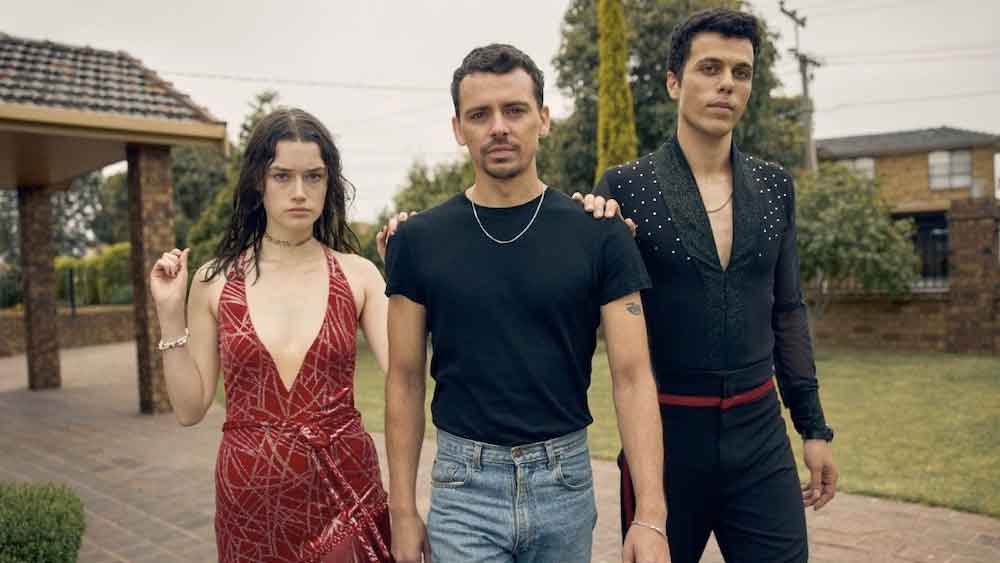
Time used to be on our side, didn’t it? There comes a moment when you’ve driven on this winding road called life for so long that you start to think about what you’ve left behind. “Of An Age” depicts one road trip that comes to define a dedicated dancer’s future love life and his reflection on this monumental adventure after several years have passed. Director Goran Stolevski utilizes the best special-effect in all of cinema, the faces of talented actors, to deliver a ton of heart in the least sentimental way possible. There are no cliches or rom-com tropes to distract you from this very realistic portrayal of love, the likes of which evokes dialogue stylings of relationship masters such as Richard Linklater. Even certain mainstays that have grown a bit stale in movies depicting young LGBTQ love are kindly absent. Part of what makes the growing bond work between Kol, the aforementioned dancer (played by rising star Elias Anton), and his first true love, a friend’s dashing older brother, Adam (played by Thom Green with an enticing debonair that’s deliciously devoid of toxic ego-mania), is that they fall in love through words. Limiting their exchanges to the front seats of a moving car for the majority of the film’s runtime means that romantic settings, love scenes, and emotional hijinks don’t hold the job of getting us to root for them. All Stolevski uses to accomplish this are two actors who transcend their characters, transforming into real people before our eyes, an active camera, and some well-chosen diegetic music… These elements are more than enough.
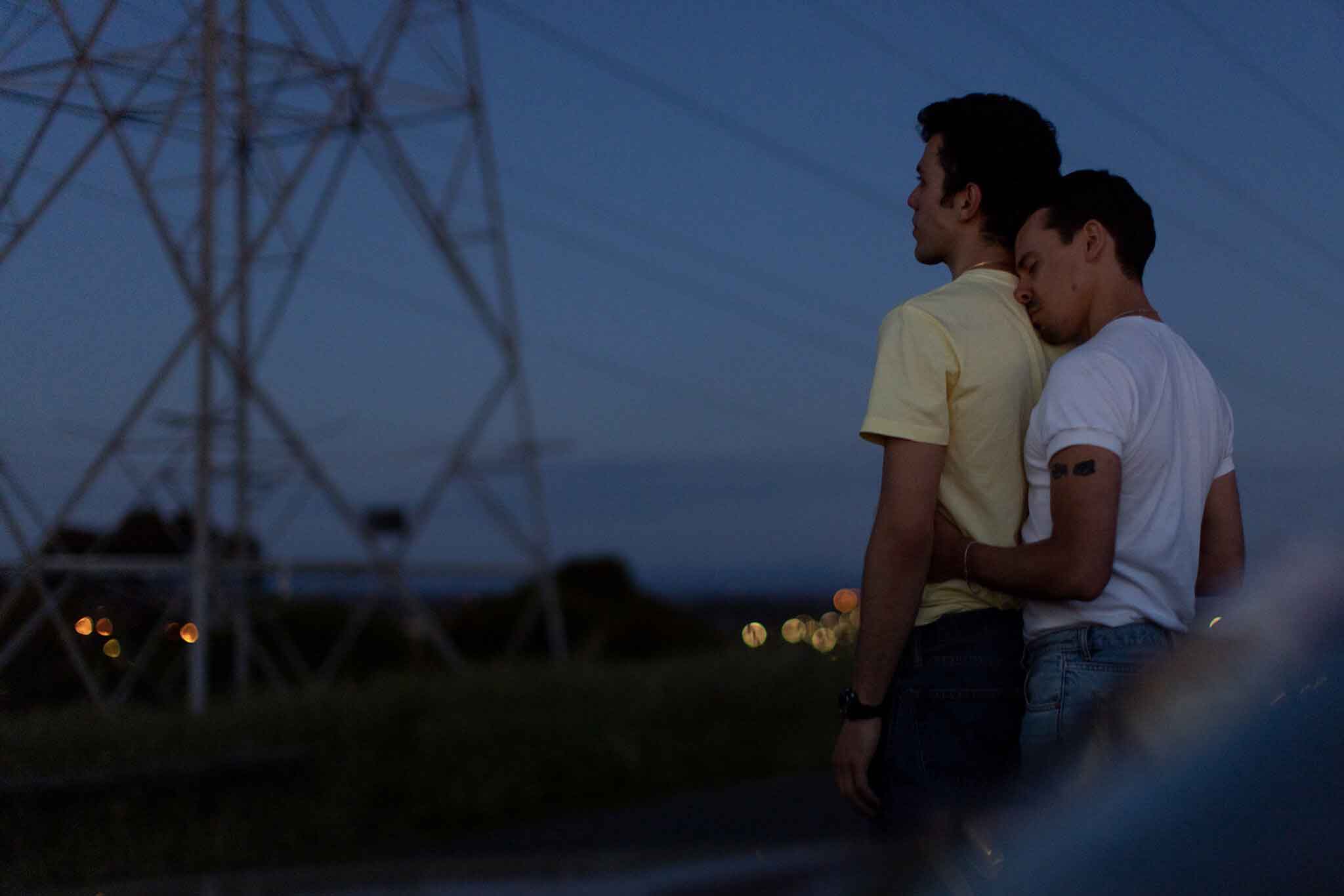
Of course our young couple sleeps together. It’s inevitable, and the entire thrust (no pun intended) of the narrative is building to this (yep) climax! This entirely tracks with the theming of the film though, as it doesn’t so much matter that they sleep together. We’re not concerned with that, though we might be if the characters were shallower. Just like the main character’s goal, which is to attend a competition in time with his rebellious dance partner, Ebony (brought to a biting and hilarious life by Hattie Hook, who seems to relish portraying hot and messy), it doesn’t really matter. We care about how Kol arrives. We know he will eventually come out of the closet. We know he will probably bed this charming older boy. We want to know he will be ok in his pursuit of doing these momentous things. Kol has already faced so much discrimination for being a Serbian-born boy with effeminate tendencies, so this quiet game we see him play is one he knows very well. We see him play it with each submerged look of wistful horniness, and we want him to stop so that he can finally be happy.
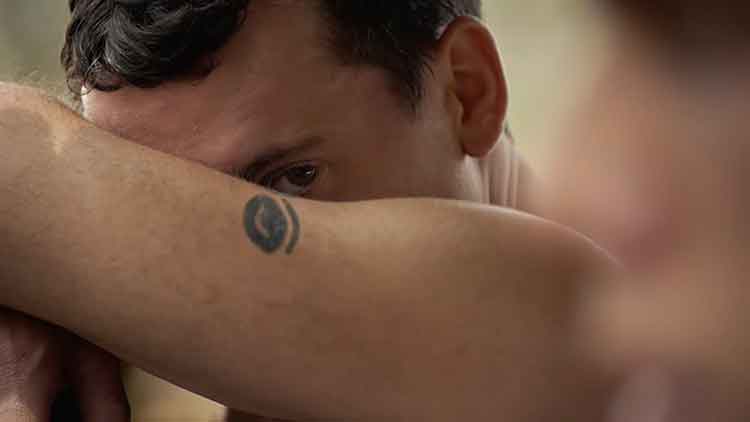
It’s established early on that Kol knows what he has to hide from his family. He performs his dancing in the garage. He makes a point to correct others when they insinuate or even directly suggest that he might be gay. More stifling than any of his reactionary behaviors is his stoic state of being. Kol’s attempts to come across as aloof and macho are a mask he wears to avoid potentially hazardous questions. Whenever he meets Adam, he doesn’t drop the act, even for a moment. Adam sees right through him from the very beginning.
Kol suppresses his desire to get closer to Adam when anything Adam does excites him, and we gather that most everything Adam does has this effect. While Adam registers this attraction, as much as Kol would like to keep it hidden, he doesn’t make a move. It’s something beautiful to see Kol slowly peel away his mask as he is able to and chooses to do so, instead of watching Adam rip it off for him in some overly aggrandized way. Too often the closeted character only comes out because they are forced into it by another. Adam never makes Kol go farther than he wants to go, and because of this, we see the goofier, quirkier, wittier, and more-often smiling Kol emerge steadily through the rubble when he finds his strength. This is a movie about a repressed individual discovering that they can lean into the things that are really them with the right person, foregoing that which has been put up for the purposes of protection or posturing.
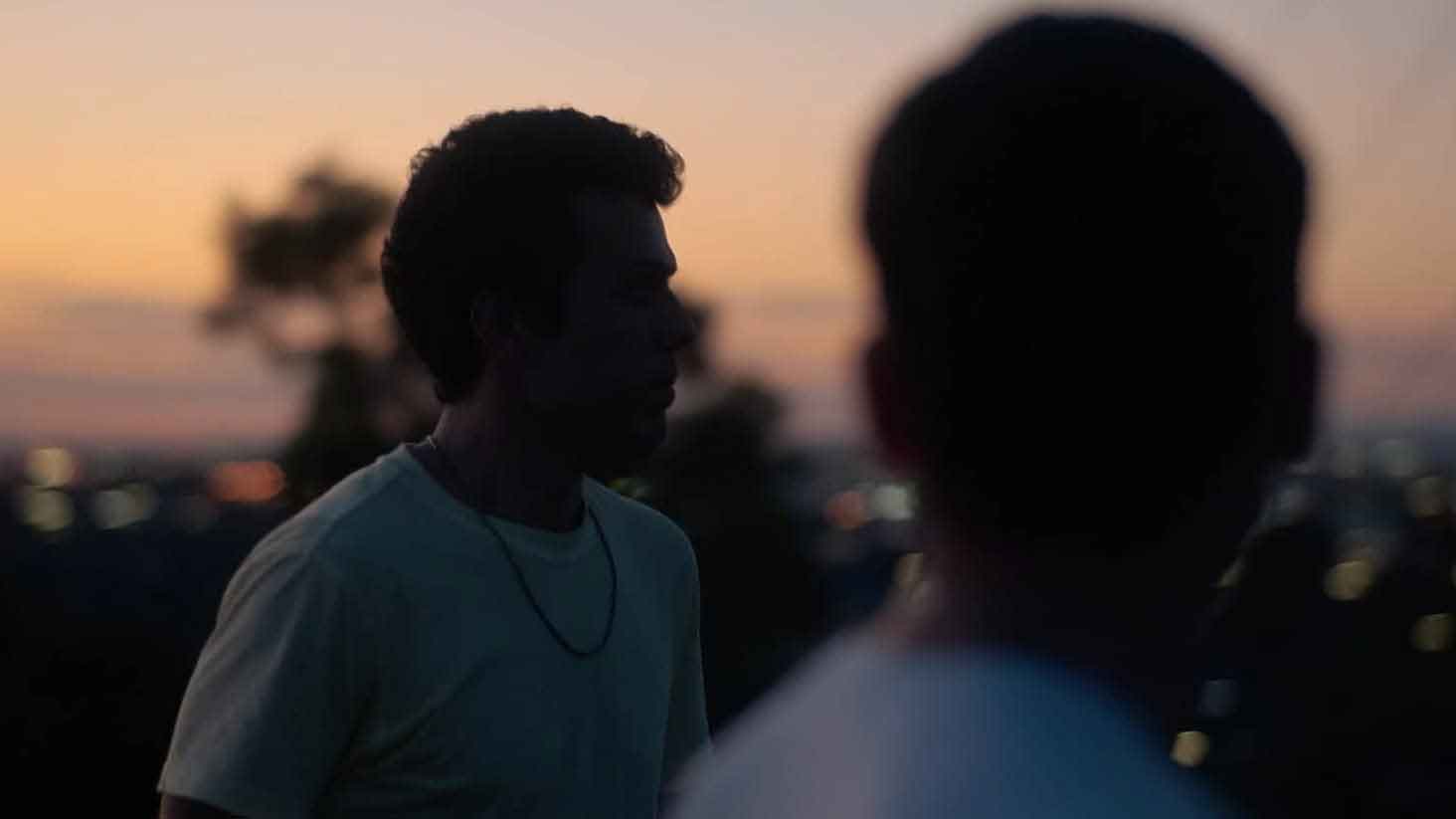
You’ll notice I’m talking about story and characters here more than any other aspect of the production. They mean a lot to me, and this is truly a movie meant to celebrate direction, dialogue, and performances in perfect harmony. That’s not to say that there aren’t gorgeous landscapes to behold. Along the journey, the gang takes time to stop at various locales, and these locations are romanticized, not by distortion, but by depiction. The stations they eat fast food at or the telephone poles accentuating their un-glamorous route are like any random things you’d see on a casual drive. After all, they aren’t vacationing. The locations they visit feel special because of what you know they’ll mean to all three of our leads when they look back on things. That’s an echo of what makes this piece beautiful. We aren’t sold romance in any capitalistic way. There’s no gorgeous shoreline where the leads go sunbathing on a blue surf set to orchestra. As a matter of fact, the only beach we see is the place where a disoriented Ebony wakes up after a night of drug-crazed anarchy. That’s the kind of love she buys into. The film itself does not.
The car is cramped. There’s no romantic dinner. There’s no shopping spree. In real life, love happens because people find each other. Where they do or what they have isn’t what brings them together. “Of An Age” shows how things like setting and circumstance can actually work against a couple’s chances of happiness, and yet, against all odds, true connection can persevere. Kol and Adam don’t come together because it’s easy. Kol and Adam make it work because doing so, even when things are scary and they have no support outside of each other, is worth it.
So… You know that Kol and Adam take the risk. I don’t think anyone is surprised to read that. It isn’t a spoiler. However, that is where I will leave things. I can assure you that the film never loses its way and there are no drastic tonal shifts to make things more digestible for a general audience in the third act, thankfully.
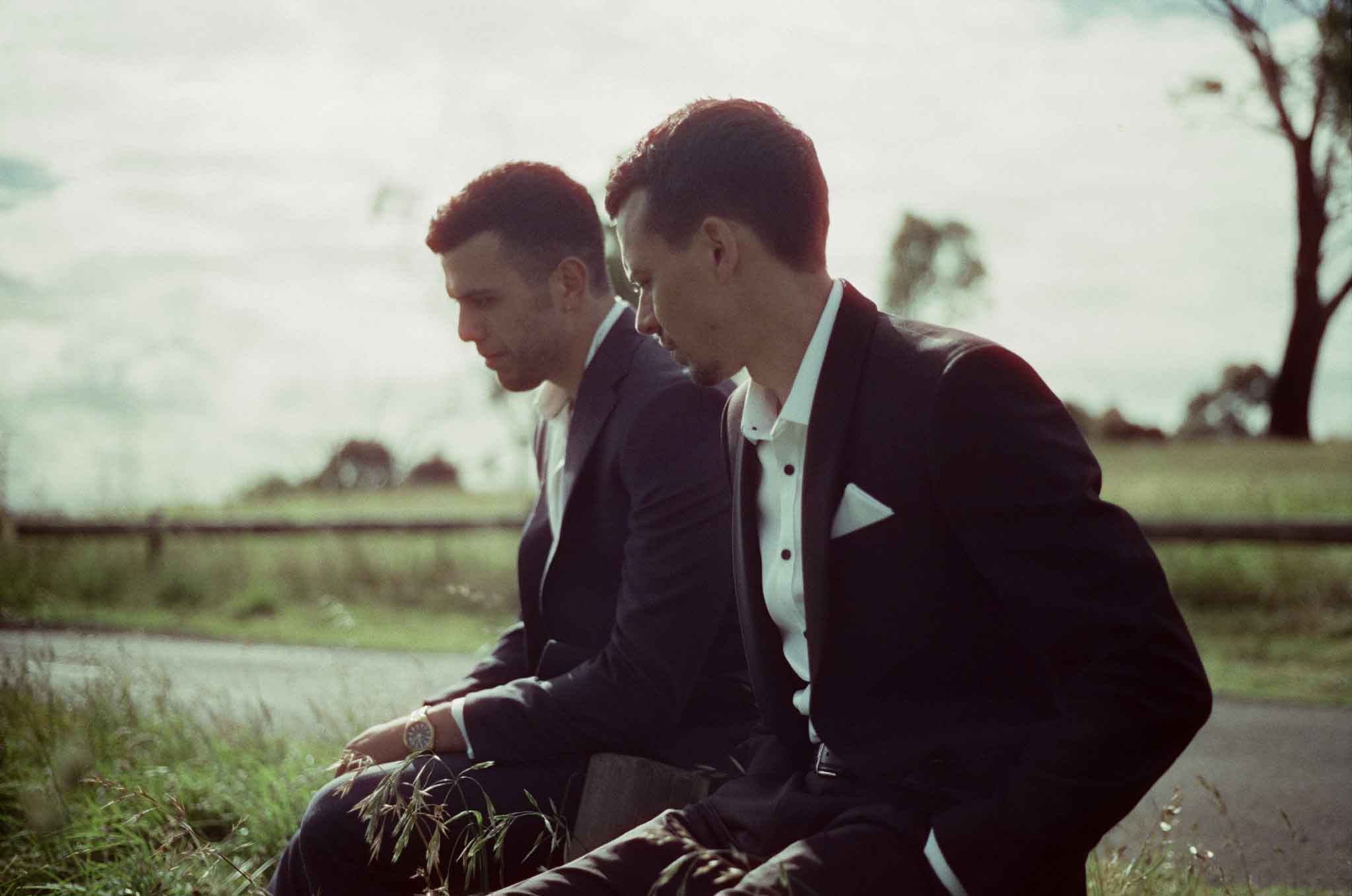
If you watch this film, and I think you should, face it with a willingness to accept. Trust that things are happening because Stolevski, who also wrote the film, is showing you how things were for these two young lovers, not how we’d like them to be. Love is truly still a battlefield for many young queer people, and when your culture or familial unit bristles at your truth, it can be even harder to make a lasting connection sustainable. Disapproval from those core, potentially earth-shattering people can make us look away, quiet down, and drown our feelings.
Humans can’t breathe when they’re submerged. Denial can curse us with an inability to embrace possibility when it finds us. “Of An Age” shows a struggling teen attempting to break free from toxic patterns and claim possibility for himself. No matter how you identify, that vibrant desire to be one with your own life and not miss out on the special things one remembers ‘til the end is something we all feel. It’s a gift that something this specific can also be so universal. See “Of An Age” today. There’s no time to waste.